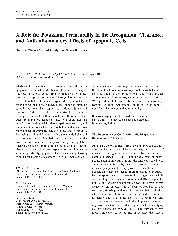摘要
The benefits of programmed cell death by apoptosis are the safe and efficient clearance of damaged, infected, or surplus cells, primarily mediated by tissue-resident macrophages or tissue-infiltrating blood monocytes that differentiate into macrophages. Microglial cells are macrophages of the brain parenchyma, important immune surveillance cells that respond to various injuries and diseases of the brain. It is often stated that how a macrophage interacts with an apoptotic cell defines subsequent inflammatory responses, i.e., will engulfment be beneficial or detrimental for tissue repair, regeneration, and immunity. Our focus has been to better understand how macrophages discriminate between living and dying cells. Following our initial findings with platelet endothelial cell adhesion molecule (PECAM)-1, our studies have revealed a key role for potassium ion permeability in regulating integrin-dependent binding of apoptotic cells by macrophages and their subsequent response to proinflammatory stimuli. Specifically, apoptotic cells represent a depolarizing stimulus for macrophages where PECAM-1-mediated cell-cell interactions delay subsequent membrane repolarization. It is salient that potassium leak represents an early feature of cells destined to die by apoptosis that could trigger depolarization of macrophages that lie in close apposition. We speculate that how a tissue-resident macrophage responds to strong depolarizing stimuli has wider implications for inflammation and autoimmunity.
- 出版日期2010-8
